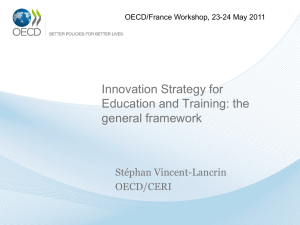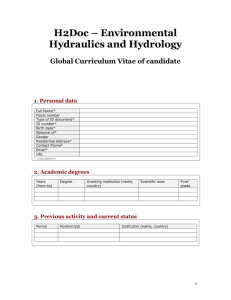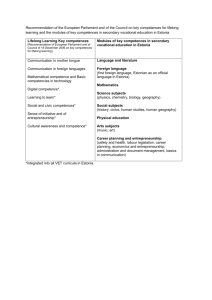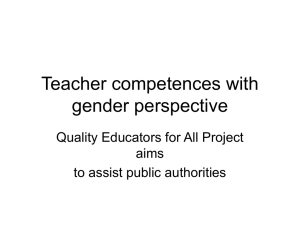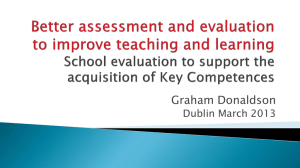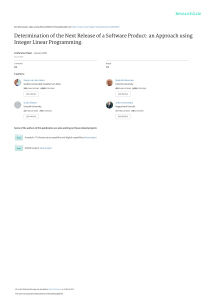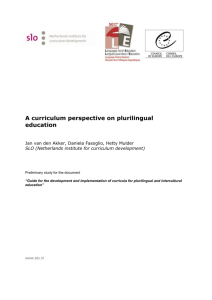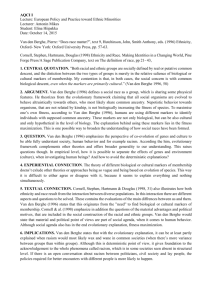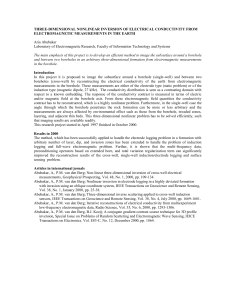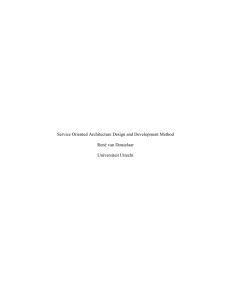View paper
advertisement
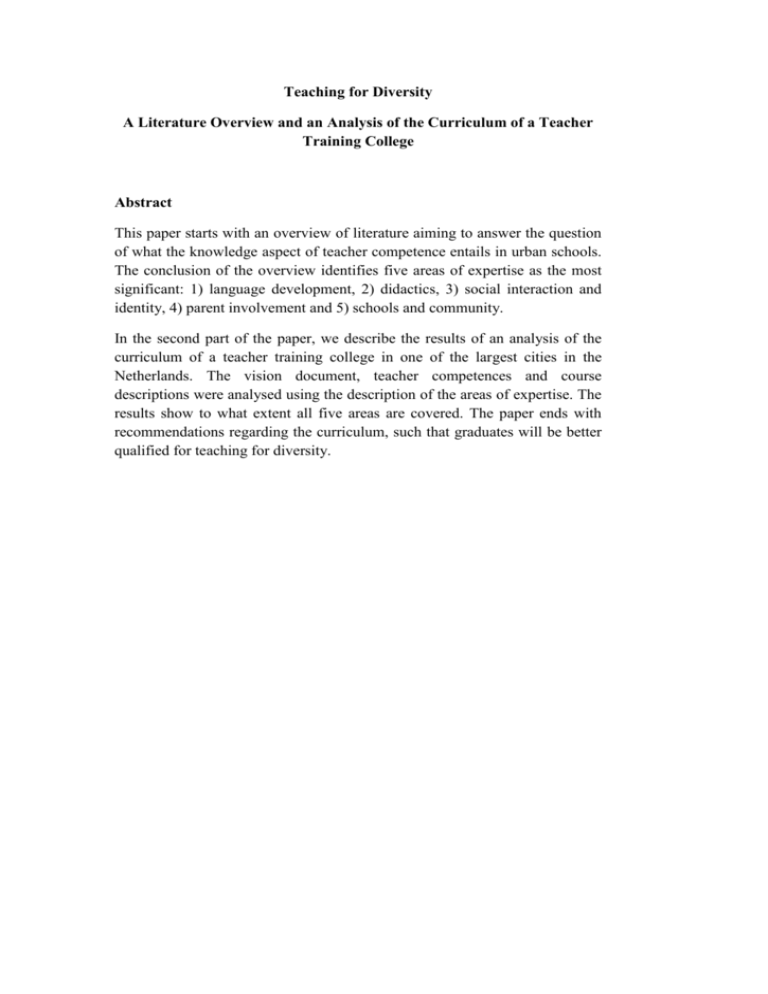
Teaching for Diversity A Literature Overview and an Analysis of the Curriculum of a Teacher Training College Abstract This paper starts with an overview of literature aiming to answer the question of what the knowledge aspect of teacher competence entails in urban schools. The conclusion of the overview identifies five areas of expertise as the most significant: 1) language development, 2) didactics, 3) social interaction and identity, 4) parent involvement and 5) schools and community. In the second part of the paper, we describe the results of an analysis of the curriculum of a teacher training college in one of the largest cities in the Netherlands. The vision document, teacher competences and course descriptions were analysed using the description of the areas of expertise. The results show to what extent all five areas are covered. The paper ends with recommendations regarding the curriculum, such that graduates will be better qualified for teaching for diversity. Introduction Most EU countries are facing increasing numbers of students from diverse backgrounds (OECD, 2012). In a recent OECD report on preparing teachers for the 21st century it is noted that “teachers are being asked to personalize learning experiences to ensure that every student has a chance to succeed and to deal with increasing cultural diversity in their classrooms” (Schleicher, 2013, p.11). This paper describes a project that aims to answer the question on what teaching for diversity entails. It took place in 2010 and 2011 in a teacher training college in one of the largest cities in the Netherlands, where teaching in urban areas means teaching for diversity and dealing with student populations that are highly diverse in terms of ethnic-cultural backgrounds, family types and parental education levels and incomes. The paper starts with an overview of literature to answer the question of what the knowledge component of teacher competence entails in inner-city schools. In the second part of the paper, we describe the method as well as the results of the curriculum analysis, in which a distinction was made between the curriculum as intended (on paper) and the curriculum as implemented (in practice) according to Van den Akker (2003). The paper concludes with recommendations for a curriculum reform informed by the results of the analysis and the aim of the management to prepare their student teachers for teaching in urban areas. Literature overview The main research question for the literature overview was what expertise do teachers in urban areas need in order to be excellent teachers for classes of students with diverse backgrounds? A literature search in the ERIC and SSCI databases limited to peer-reviewed reviews and meta-analyses from 2000 onwards, resulted in five areas of expertise. Urban teachers should first of all know about language development in classes of students whose first language is not the language of instruction. Secondly, these teachers should be competent in using didactic resources that support the learning of all their students. Diverse classes need different didactic resources and different types of instruction than homogeneous classrooms. If schools and teachers are committed to encouraging the talents of all their students they should have knowledge of the use of teaching materials, methods and types of instruction designed for diverse classes. In addition, urban teachers should know about social psychology issues such as stereotyping, teacher expectations and ethnic-identity issues. And finally, urban teachers that succeed in engaging the parents of their diverse students as well as cooperate with community organisations on a basis of equality will further support school achievement in their urban schools. Curriculum analysis In the second part of this paper, we present the results of the analysis of the curriculum of the teacher training college based on the five areas of expertise. In the analysis we distinguished between two levels of the curriculum: the intended and the implemented curriculum (Van den Akker 2003). The intended curriculum refers to the curriculum on paper and was analysed using documents that describe the vision of the institute, the teacher competences that student teachers are supposed to develop during the course of their four-year study programme (the ‘end qualifications’) and the course descriptions. The analysis showed that the vision document explicitly mentions ethnic cultural diversity and urban issues, yet does so in fairly abstract and general terms. Attention for ethnic cultural diversity seems to be less central to the documents describing the competences that student teachers are expected to acquire. Four out of seven competences mention ethniccultural diversity. Relating the course descriptions to the areas of expertise, it is demonstrated that in the first three years attention is paid to dealing with differences using didactics, while the last two years deal with the theme parent involvement and the first and third year deal with cultural diversity in a more general way. The themes language development in diverse classes, social interaction and identity receive relatively little attention in the curriculum. The implemented curriculum was investigated by analysing a recorded focusgroup session with teacher trainers from the curriculum committee. The analysis of this session showed that the implemented curriculum seems to pay more attention to ethnic-cultural diversity than suggested by the intended curriculum. Recommendations for a curriculum reform One of our recommendations is to integrate the areas of expertise more structurally in the curriculum, which implies the inclusion of additional subcompetences that reflect all areas of expertise, and attention for the topic in each study phase and in each core course. It seems that more explicit attention needs to be especially paid to language, social psychological processes and school-community relationships. We also recommend closely monitoring the alignment of the vision, the revised competences, the courses and assessment practices. References Akker, J. van den. 2003. Curriculum perspectives: An introduction. In Curriculum landscapes and trends, edited by Akker, J. van den, Kuiper, W., and Hameyer, U., 1-10. Dordrecht: Kluwer Academic Publishers. OECD (2012). Untapped skills. Realising the potential of immigrant students. Paris: OECD. Schleicher, A. (Ed). (2013). Preparing Teachers and Developing School leaders for the 21st Century. Lessons from around the world. Paris: OECD.
